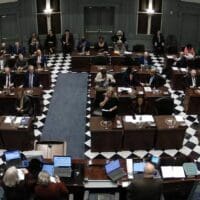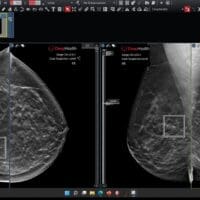

2 bills to change Delaware’s income tax rules didn’t fare well in a House committee Tuesday. Photo by Lukas/Pexels
A bill that would alter Delaware’s tax code in a way the sponsor says would ultimately lower tax payments for everyone was put to death Tuesday by the House Revenue and Finance Committee.
Another was delayed for consideration until the next meeting.
Votes for House Bill 233, sponsored by Majority Leader Mike Ramone, R-Newark/Pike Creek, split along party lines in the Democrat-dominated committee. All four Republican members voted yes. No Democrats did.


Mike Ramone
The bill would have raised the minimum income subject to income tax from $2,000 to $2,500 and collaped the state’s six income tax brackets into three brackets, giving all a slightly reduced tax rate, Ramone said.
He said the bill had been designed to give every Delaware resident some tax relief and to simply Delaware’s income tax guidelines because they were one of the most complicated in the nation.
Rep. Kendra Johnson, D-Bear, said she was all for helping taxpayers but worried about the loss of revenue and how that would ultimately affect nonprofits and others who relied on state grants.
Ramone responded that if the state finances are as tight as expected, there was a budget smoothing fund that could be used. He also pointed out that with the coming change in governors in 2025, there was no guarantee that fund would be continued.
It only exists as a result of an executive order from Gov. John Carney, who is in the last year of his second term, and is not a matter a law, Ramone said.
He also said that Delaware continues to attract people to move here because of low property taxes and the lack of a sales tax. They will bring more money into the state, he said.’
IN THE NEWS: Hearing on Milford homeless village becomes comment-palooza
Rep. Paul Baumbach, D-Newark, said that while Ramone described Delaware’s tax brackets as extensive, he described them as progressive and felt that what Ramone was proposing was regressive.
Rebecca Goldsmith, deputy director of the state Department of Finance, which oversees taxes, said Ramone’s bill would reduce taxes for everyone. But it would come “with a high cost of approximately half a billion dollars per year or 20% of the forecasted personal income tax revenue in 2026.”
That could be disastrous, she said.
“Delaware’s personal income tax makes up roughly 1/3 of all general fund revenue and it’s the largest single contributor to the state’s general fund,” she said. “Unlike many of Delaware’s other taxes, the personal income tax grows with the economy, which is essential because Delaware does not have a sales tax to support growth, as many other states do.”
These kind of reductions without an alternate revenut offset would leave the state with significant budget shortfalls now and into the foreseeable future, she said.
Ramone asked the committee to pass the bill on to the House Appropriations Committee and give it a chance there. He did not get this wish.
Second tax bill
A second bill, House Bill 149 was tabled for time because its consideration was running up about the House and Senate start times. The committee had started late because it was having trouble gathering a quorum.
‘The bill would have required state personal income tax brackets to be annually adjusted for cost-of-living increases. Rep. Rich Collins, R-Millsboro, said that would prevent lower income taxpayers from having to pay more taxes because of “bracket creep.”
Taxpapers should not have to face both inflation and bracket creep at the same time, he said.
Baumbach promised to bring it back up in the committee’s next meeting.


Betsy Price is a Wilmington freelance writer who has 40 years of experience.
Share this Post








